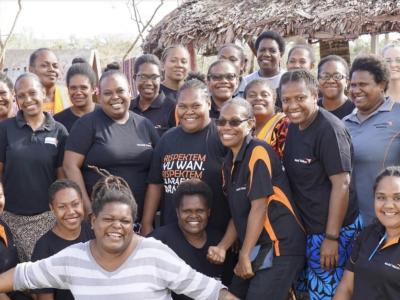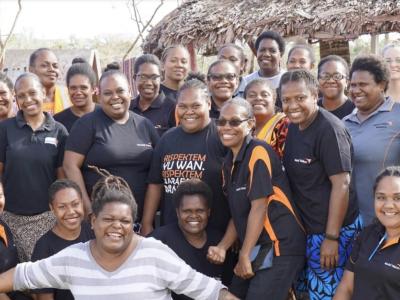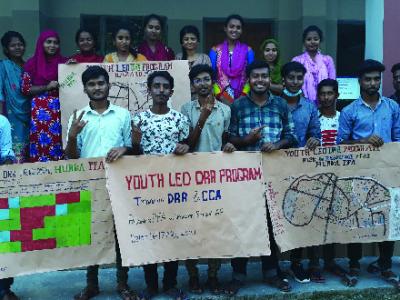article / January 28, 2025
Dorothy Leads the Charge for Clean and Healthy Living in Torowa
Through the support of the PNG Australia Partnership and the Western Province Partnership (WPP), World Vision were able to facilitate a Community-Led Total Sanitation (CLTS) in Morehead Local Level Government (LLG), where the team came across an inspiring member of the community who, despite her special needs, became a WASH Committee member, and with the advice of World Vision, she went on to build her own toilet, which inspired all abled members of her community to work together.
article / January 20, 2025
Rural Community declared as Open Defection Free
Through the support of the Australian Government through - DFAT, the Western Province Partnership (WPP) and World Vision were able to facilitate programs and declare a small community called Matta, outside of Morehead Station in the South-Fly District of Papua New Guinea, an Open Defecation Free (ODF) zone. This story showcases the challenges and triumphs experienced by not just the community members but the key stakeholders as well, from conducting the CLTS training programs to now celebrating the declaration and looking forward to what the future holds for the other 50 communities yet to be declared ODF in the coming months.
publication / March 24, 2015
RFP: Consultancy for the Continental Study on the Impact of Armed Conflict on Children in Africa
The African Charter on the Rights and Welfare of the Child, (ACRWC or the Charter), which establishes the African Committee of Experts on the Rights and Welfare of the Child (ACERWC or the Committee) is commissioning an inter-disciplinary assessment of situations on African prob
publication / February 26, 2024
2022 World Vision Vanuatu Impact Report
2022 World Vision Vanuatu Annual Impact Report
publication / February 26, 2024
2022 World Vision Vanuatu Impact Report
2022 World Vision Vanuatu Annual impact report
publication / September 20, 2023
Scalable Approaches for Children and Youth-led Disaster Risk Reduction
This report describes the efforts of World Vision Bangladesh to train young volunteers to engage in disaster risk reduction activities that can be scaled up across the country.
publication / November 12, 2017
Value chain development with the extremely poor: evidence and lessons from CARE, Save the Children, and World Vision
The majority of the world’s poorest people live in South Asia and Sub-Saharan Africa.Most of these households engage in rural farming and subsist on income at or below the international extreme poverty line of US$1.90 per person per day (our working definition for the ‘extremely poor’) (FAO, 2015
publication / November 12, 2017
Value chain development with the extremely poor: evidence and lessons from CARE, Save the Children, and World Vision
The majority of the world’s poorest people live in South Asia and Sub-Saharan Africa.
publication / July 13, 2022
The Violence-Prevention Dividend
A new study by a coalition of child-focused agencies on why preventing violence against children makes economic sense for countries.
publication / October 27, 2021
COVID-19 Response Update - October 2021
Information and statistics about our global response to COVID-19.






